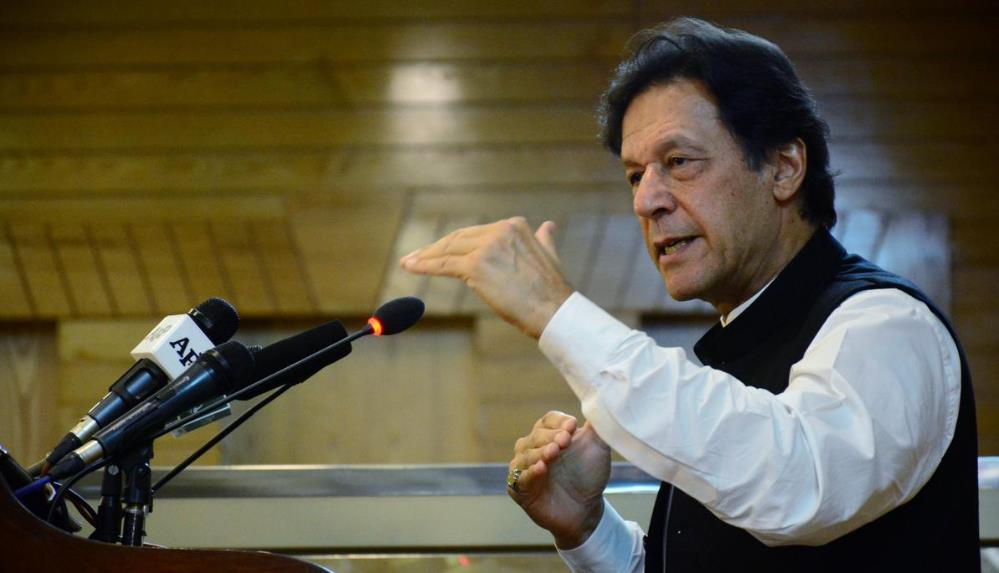

Pakistani Prime Minister Imran Khan gestures as he addresses the Azad Kashmir parliament on Pakistan's 72nd Independence Day in Muzaffarabad, Pakistan-administered Kashmir, August 14, 2019. /Reuters photo
Pakistani Prime Minister Imran Khan is again considering closing the country's airspace to India and blocking its eastern neighbor’s land trade route to Afghanistan, the science and technology minister in Islamabad said on Tuesday.
“Legal formalities for these decisions are under consideration ... Modi has started we’ll finish!” Pakistan’s Science and Technology Minister Fawad Chaudhry said in a tweet. The minister made the revelation as Pakistani officials have engaged in a heated debate on how to respond to India’s decision to strip Kashmir of its autonomy earlier this month, according to Pakistan Today, an English-language newspaper based in the country's Punjab Province.
Pakistan reopened its airspace to India in mid-July, having closed it in February after an attack by a Pakistan-based Islamist militant group in Indian-controlled, Muslim-majority Kashmir that led to clashes between the nuclear-armed neighbors.
On Monday, Khan pointed out India’s decision to abrogate Article 370, which has guaranteed Kashmir’s autonomy, violates its own constitution and supreme court rulings.
“We have succeeded in internationalizing the issue of Kashmir; we talked to world leaders and embassies. The UN for the first time since 1965 convened a meeting on Kashmir issue. Even international media has picked it up,” Khan said, referring to the UN General Security Council meeting on August 16 in which the situation in Kashmir had been discussed at an informal level.
He promised to highlight the plight of Kashmiris during his speech at the UN General Assembly session in New York on September 27.
Read more: 4,000 detained, 8 injured as India quells protests in Kashmir
Read more: Imran Khan slams India for violating UN resolution
While Pakistan has resorted to seeking help from the international community, the Indian government objected to foreign intervention in resolving the Kashmir crisis.
Indian Prime Minister Modi rejected U.S. President Donald Trump’s offer to mediate the Kashmir dispute. On the sidelines of the G7 summit, he said the two countries could resolve the issue bilaterally.
“There are many bilateral issues between India and Pakistan, and we don’t want to trouble any third country. We can discuss and resolve these issues bilaterally,” Modi said.
Protesters are regularly clashing with security forces in the disputed region in recent weeks, and the Pakistani army said on Tuesday that shells fired by Indian army killed two.
After February’s attack, Pakistan and India carried out airstrikes on each other’s territory and warplanes fought a dogfight above Kashmir in which an Indian jet was shot down.
The airspace closure forces planes to take long detours, costing airlines millions of dollars.
In a move to ease restrictions imposed on Kashmir’s civilian population, the local government said on Tuesday it is planning to reopen high schools from Wednesday in some areas in Jammu and Kashmir.
(With input from agencies)

Copyright © 2018 CGTN. Beijing ICP prepared NO.16065310-3
Copyright © 2018 CGTN. Beijing ICP prepared NO.16065310-3